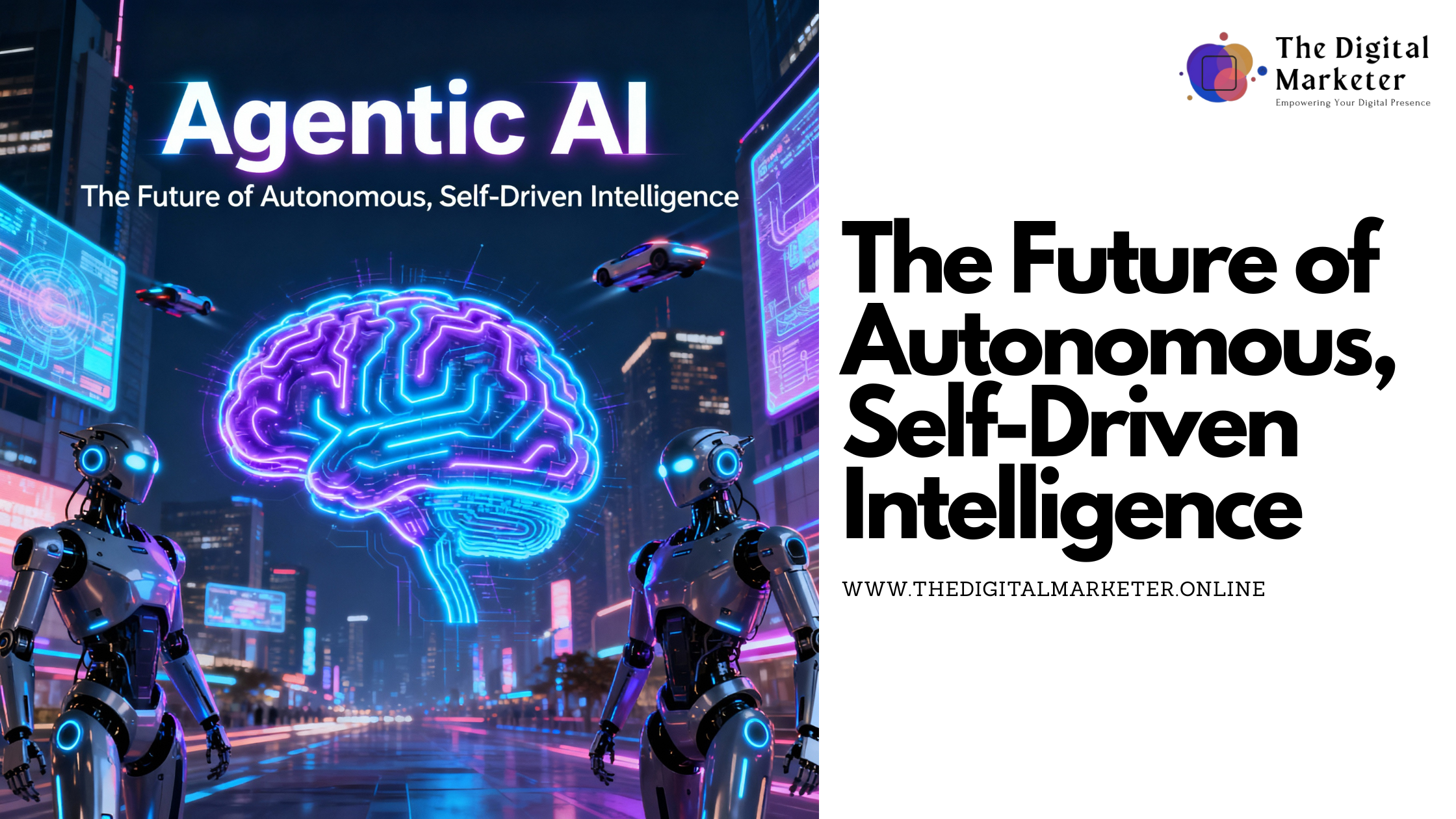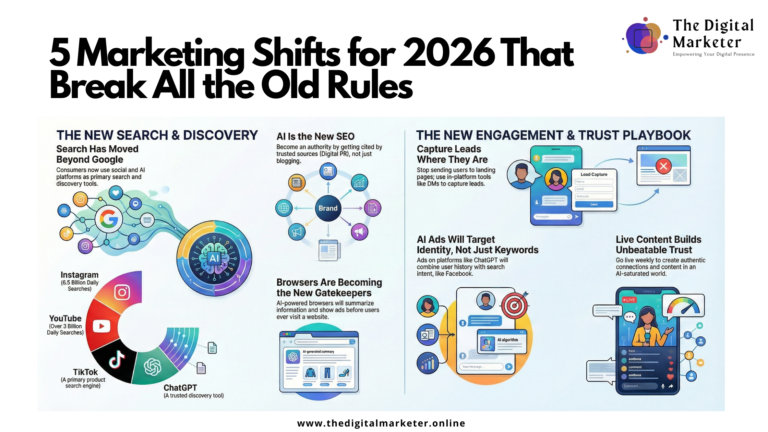Introduction
The world of artificial intelligence is evolving rapidly — and the next big leap is Agentic AI. Imagine AI systems that don’t wait for instructions but act autonomously, analyze complex environments, and pursue goals intelligently.
From autonomous business operations to adaptive decision-making, Agentic AI represents a new generation of self-driven, context-aware intelligence — transforming how humans and machines work together.
What is Agentic AI?
Agentic AI is a new branch of artificial intelligence that enables systems to reason, decide, and act independently to accomplish goals. Unlike traditional AI, which depends on prompts or fixed rules, agentic systems possess a level of autonomy and initiative — learning from their environment and optimizing actions in real time.
In simple terms, an AI agent is no longer a passive tool. It’s an active problem-solver that can plan, execute, and evolve — similar to how humans handle complex challenges.
Agentic AI vs. Traditional AI
| Aspect | Traditional AI | Agentic AI |
|---|---|---|
| Input Type | User-driven prompts | Self-initiated actions |
| Learning | Static data training | Continuous contextual learning |
| Decision-making | Rule-based | Adaptive and dynamic |
| Autonomy | Limited | Fully autonomous |
| Goal Orientation | Executes tasks | Pursues outcomes |
This shift moves AI from reactive to proactive — making it capable of long-term reasoning, strategy, and optimization.
How Agentic AI Works
Agentic AI is powered by a combination of cutting-edge technologies:
- Large Language Models (LLMs): Provide reasoning, natural language understanding, and planning.
- Reinforcement Learning (RL): Enables continuous improvement through feedback loops.
- Knowledge Graphs: Allow contextual memory and semantic reasoning.
- Autonomous Planning Systems: Dynamically prioritize and adjust actions.
- Multi-Agent Collaboration: Multiple AI agents working together to achieve complex objectives.
This forms the Agentic Loop — a continuous cycle of:
Observe → Reason → Act → Learn → Optimize
Core Capabilities of Agentic AI
- Goal-Oriented Intelligence – Focuses on outcomes, not just actions.
- Context Awareness – Understands user intent, history, and external variables.
- Collaborative Decision-Making – Works with other systems or agents.
- Ethical Autonomy – Operates within defined moral and operational boundaries.
- Continuous Improvement – Adapts strategies based on new information.
Applications of Agentic AI
1. Business Operations Automation
Agentic systems can manage workflows, optimize resource allocation, and automate routine decision-making — enabling “hands-free” business management.
2. Customer Support
Advanced AI agents can handle full customer interactions, from query resolution to retention strategy, learning from every conversation.
3. Healthcare
Agentic AI can analyze patient data, coordinate care plans, and even assist in early diagnosis — driving proactive healthcare rather than reactive treatment.
4. Marketing Optimization
From campaign management to dynamic pricing, Agentic AI can autonomously manage and optimize marketing performance.
5. Robotics and Vehicles
In autonomous vehicles and industrial robots, agentic systems enable adaptive navigation, safety control, and decision-making in real-world environments.
Benefits of Agentic AI
✅ Higher Efficiency – Cuts down human intervention and manual errors.
✅ Smarter Decision-Making – Learns continuously and improves with time.
✅ Scalability – Handles thousands of actions simultaneously.
✅ Personalization – Delivers user-specific outcomes at scale.
✅ Always-On Autonomy – Operates 24/7 without supervision.
Challenges and Ethical Implications
While promising, Agentic AI must be developed responsibly.
- Accountability: Clear ownership of AI-made decisions is essential.
- Transparency: Users must understand how agents make choices.
- Bias Mitigation: Avoid unintended discrimination in autonomous actions.
- Data Privacy: Protect user information from misuse.
Governance frameworks and AI ethics boards will play a key role in shaping safe adoption.
The Future of Agentic AI
The coming years will see:
- AI Agents as Digital Workers handling business tasks autonomously.
- Agent Marketplaces where intelligent agents collaborate and trade data.
- Human-AI Collaboration, with humans focusing on creativity while agents manage execution.
- Cross-Industry Intelligence, integrating data from finance, healthcare, media, and logistics.
In short — Agentic AI is the bridge to truly intelligent automation.
Conclusion
Agentic AI marks the transition from automation to autonomy. As enterprises integrate agentic frameworks into their operations, we’re moving toward a world where AI agents will think, act, and evolve alongside humans — driving the next wave of digital innovation.
If you’re exploring how Agentic AI can transform your business, now is the time to act. The organizations that adopt it early will lead the next era of intelligent, self-operating systems.


